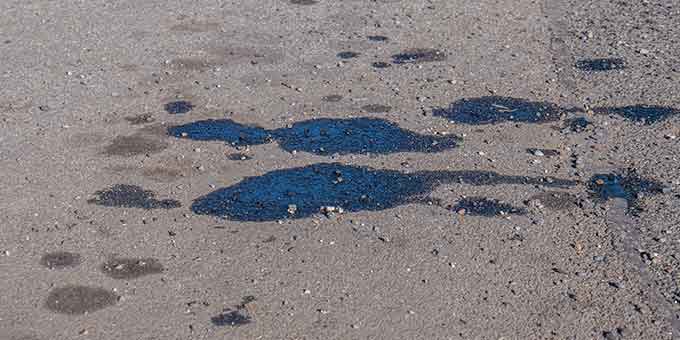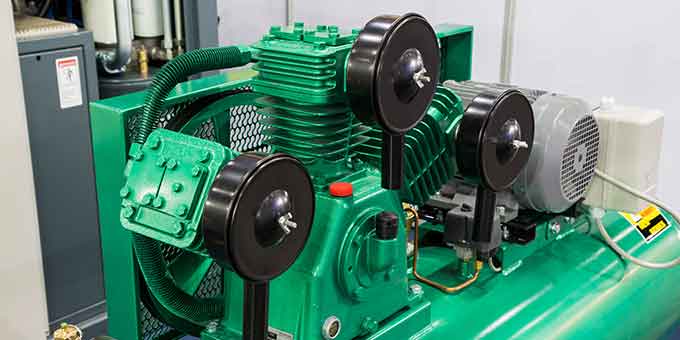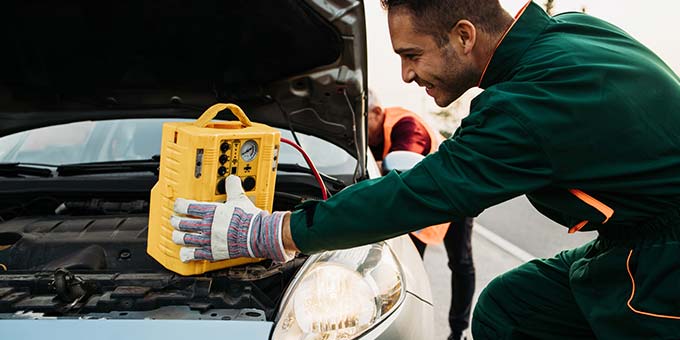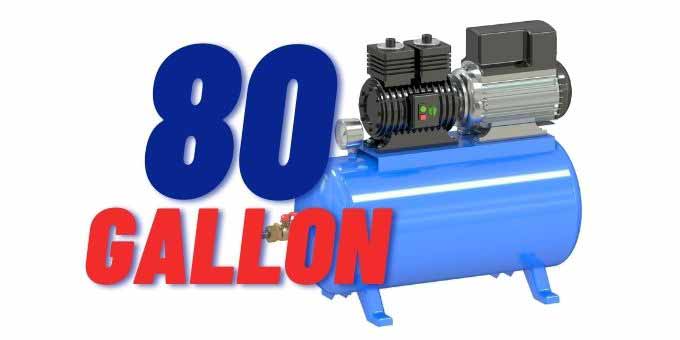Can the air compressor overheat? It’s a question we all ask at some point, but the answer might surprise you. The short answer is YES. Air compressors do overheat, and it’s essential to take preventive measures to avoid such an event occurring.
Air Compressors are designed with safety features that prevent them from overheating when they’re not under heavy use. However, if your air compressor is running for extended periods without any breaks or pauses, there is a chance that it will eventually overheat. This can happen even if you have left plenty of cooling space in the tank because heat transfer takes place through the metal parts inside the tank as well as the outside metal casing around it.
What causes an air compressor to overheat?
Here are some common reasons why air compressors overheat:
Dirty filter
The most common cause for an air compressor overheating is a dirty or clogged filter. It’s a simple fix if you catch it quickly (You can clean the filter with some filter cleaner). However, if you fail to do this for an extended time, then the compressor gradually heats up until it’s hot enough to trip the safety cut-out switch.
Leaking piston
Another common cause is if your air compressor has one or more worn parts like a leaking piston ring, which makes the unit work harder than it should and, in turn, causes overheating.
Oil
An air compressor’s oil is essential in running smoothly and preventing overheating. If there isn’t enough oil in the compressor, the metal parts will start to grind against each other and create friction, which will heat the unit. If there’s too much oil, it will begin to circulate through the compressor’s cooling system and interfere with its ability to dissipate heat. This can also lead to overheating.
Overuse
If you use your air compressor every day, the frequent start-up and shutdown can cause overheating. If you constantly turn it on and off, this won’t allow the metal parts to cool down completely before starting it up again. This leads to increased friction during use which leads to overheating.
Manufactory defects
If it’s brand new and fails to perform as expected, the likelihood is there’s something wrong with the manufacturer’s design or production process. You can also read our buying guide to choose the suitable air compressor for your needs.

How can you know if your air compressor is overheating?
If you’re worried that your air compressor might be overheating, there are a few indications you can look for. First, take a look at the tank. If it’s hot to the touch, then it’s probably been running too long and is in danger of overheating. Another indication is if the compressor is making strange noises; this could indicate that something is wrong and the unit is struggling to keep cool. Finally, if the compressor isn’t turning on at all, it might be that the safety cutoff switch has been activated because of the heat. In any case, it’s best to stop using the compressor immediately and call a technician to look at it.
Why it’s important to keep your air compressor from overheating?
An air compressor is an important tool for many industrial and construction applications. However, if the compressor overheats, it can cause extensive damage and be a fire hazard. Here are some reasons why it’s important to keep your air compressor from overheating:
1. Overheating can cause extensive damage to the compressor.
Overheating can cause extensive damage to the compressor. If the compressor is allowed to overheat for an extended period of time, the heat can damage the metal parts inside the tank.
2. Overheating can cause the compressor to fail prematurely.
If an air compressor overheats, the heat can cause the metal parts inside the tank to fail. This can lead to extensive damage to the compressor and can cause the compressor to fail prematurely.
3. Overheating can cause the compressor to leak oil or gas.
Overheating can cause the compressor to leak oil or gas. This can be a fire hazard and can damage the compressor. It’s important to keep the compressor from overheating to prevent these things from happening.
4. Overheating can be a fire hazard.
The overheated unit can cause the surrounding area to catch on fire, and the flames can easily spread to other flammable materials. In addition, the heat from the compressor can cause the fuel tank on a vehicle or equipment to ignite, which can result in a devastating fire.
5. Overheating can cause the compressor to trip the safety cutoff switch.
Overheating can cause the compressor to trip the safety cutoff switch. This is a very dangerous situation, as it can easily lead to a fire.

How to keep the air compressor from overheating?
One way to help keep the air compressor from overheating is to ensure that it is adequately lubricated. Lubricating the unit will help keep the moving parts running smoothly and will help dissipate heat. Additionally, be sure to clean the compressor regularly and provide adequate ventilation so that it can breathe.
In the past, it was advised to add a drip pan underneath the compressor to catch the oil that could be burned off to keep the unit from overheating. However, in modern units with enclosed motors and sealed bearings, this is unnecessary because the paths are made of synthetic material that does not burn off when heated.
The recommended way to lubricate a compressor is by using a high-quality air compressor oil or grease for compressors. For more information, you can Read our post “What’s the Best Air Compressor Oil Type?“.
Some people use homemade concoctions consisting mainly of mineral oil, but these have been known to cause problems, so they are NOT recommended.
It’s also important to regularly check your air compressor’s oil level and keep it within the manufacturer’s recommended range. If you notice that the compressor is starting to overheat, one of the first things you should do is check the oil level and make sure it’s correct. Add more oil if necessary, but keep in mind you should only add the exact amount of oil required by the compressor.

What can you do if your air compressor overheats?
Shut off the power supply – This will help prevent the unit from doing any more damage and will allow it to cool down. Once it’s cooled down, you can try to find the cause of the problem and fix it.
Remove any obstruction that may be restricting airflow – This includes things like dirt, dust, or other debris that can get caught in the fan or filters. Be sure to clean the compressor regularly and provide adequate ventilation so that it can breathe.
Call a service provider – If you cannot fix the problem, you may need to call a service provider.
Conclusion
Air compressors are a necessary piece of equipment for many businesses and households. When they work correctly, they provide a steady flow of compressed air that can be used for various purposes. However, it can cause significant damage and inconvenience when they malfunction or overheat. In this post, we have outlined some steps that you can take to help keep your compressor running smoothly and prevent it from overheating. We also provided information on what to do if the compressor does overheat.









